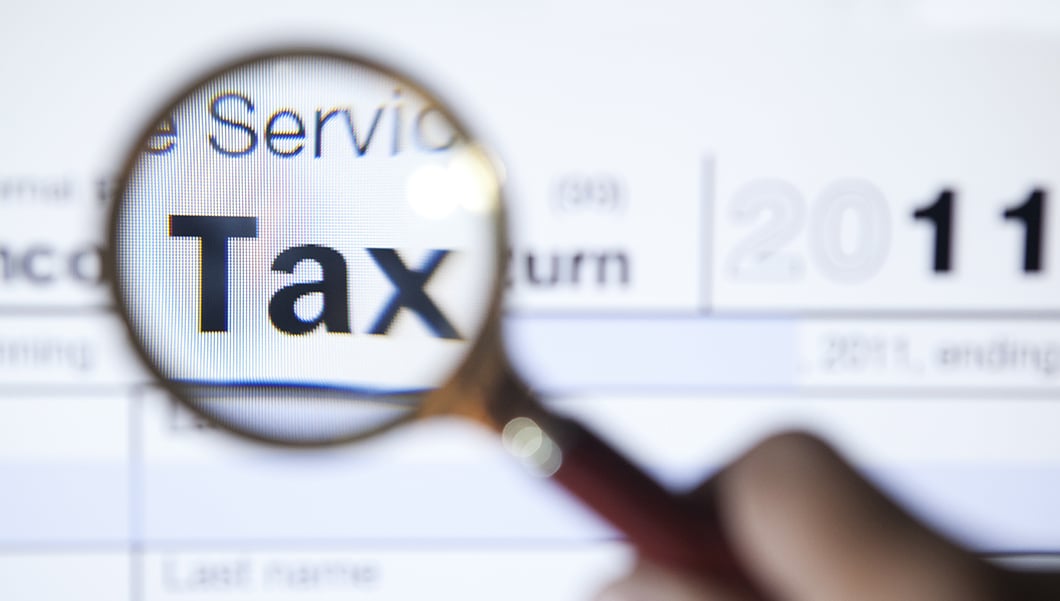
Tax e-news / December – Autumn statement
PERSONAL ALLOWANCE AND TAX BANDS
The promised hike in the personal allowance to £10,000 is confirmed for the tax year 2014/15.
The basic rate limit is £31,865 for 2014/15. This means that 40% taxpayers (if taxable income does not exceed £100,000) will partly benefit from the increase in personal allowance.
The 45% band for 2014/15 applies to taxable income over £150,000.
As is well known, there is a nasty tax trap by reference to the gradual withdrawal of the personal allowance if taxable income exceeds £100,000.This is via a reduction of £1 of allowance for every £2 of excess taxable income. For 2014/15 the trap is even wider than before with the increase in personal allowance to £10,000:
| Taxable income | Marginal rate |
| £100,000 to £120,000 | 60% |
| £120,001 to £149,999 | 40% |
| £150,000 + | 45% |
If your taxable income is ordinarily in the 60% marginal band we can advise on possible solutions.
ANNUAL CGT EXEMPTION
This is confirmed as £11,000 in 2014/15, so is worth a useful £3,080 at the 28% rate
ISA LIMITS 2014/15
- £11,880 (including cash maximum of £5,940)
- Junior ISAs = £3,840
| Profits |
Year to: |
31/3/15 (FY2014) |
31/3/16 (FY2015) |
| First £300,000 |
20% |
20% |
|
| Over £1.5m |
21% |
20% |
The concept of associated companies will be of limited application once there is a standard rate of corporation tax of 20%, but it will still be relevant in determining whether the tax has to be paid by instalments by large companies. A simpler system will apply, based on 51% group membership, so this may help you avoid paying the tax before the normal due date of 9 months from the end of the accounting period (well 9 months + 1 day to be exact!).
Equally interesting is the news that the rules which restrict the availability of relief for trading losses on a change in ownership will be relaxed via Finance Bill 2014.
CLASS 3A VOLUNTARY NATIONAL INSURANCE CONTRIBUTIONS
From October 2015 this new class of voluntary NICs will be introduced to give those who reach State Pension age before 6 April 2016 an opportunity to boost their Additional State Pension. This is because they will not be able to benefit from the new single tier pension which comes in then.
CLOSE COMPANY LOANS TO PARTICIPATORS
There were important anti-avoidance changes to the tax regime earlier in 2013, whereby the company can face a tax charge of 25% on the loans, and there was the threat of more changes on the way. However, following consultation it has been decided that there will be no immediate changes. Good news of course, but for how long?
MEMBERS OF LIMITED LIABILITY PARTNERSHIPS (LLPs)
LLPs have become increasingly popular as a vehicle for carrying on a wide variety of businesses, although running a business as a limited company may well be the norm once corporation tax rates go down to 20% whatever the level of taxable profits.
An LLP combines limited liability for its members with the tax treatment of a traditional partnership. Individual members are deemed to be self-employed and are taxed as such on their respective profit shares as if they were carrying on a notional sole trade.
It has now been decided that deemed self-employed status is not appropriate in some cases. For example, individuals who would normally be regarded as employees in high-salaried professional areas such as the legal and financial services sectors are benefitting from self-employed status for tax purposes which leads to a loss of employment taxes payable.
The legislation may be amended (probably with effect from 6 April 2014) by simply removing the provision which deems individual members to be self-employed. This would mean applying the normal employment v self-employment tests. A consultation document proposed additional tests which may be easier to apply in certain scenarios.
COMMUNITY AMATEUR SPORTS CLUB (CASC)
An individual can make a donation to a CASC under Gift Aid. This will be extended to cover donations of money made by companies.
SOCIAL INVESTMENT TAX RELIEF
As previously announced, a new tax relief for equity and certain debt investments in social enterprises will be available from April 2014. Organisations which are charities, community interest companies or community benefit societies will be eligible. Following consultation, investment in social impact bonds issued by companies limited by shares will also be eligible.
A ‘roadmap’ for social investment will be published in January 2014.
CAR FUEL BENEFIT CHARGE
Employees and directors who are provided with a company car and who also receive some or all of their private fuel from their employers are subject to the fuel benefit charge – on an all or nothing basis. The benefit charge is determined by applying a set multiple to the appropriate percentage for the car, based on its CO2 emissions.
The car fuel benefit charge multiplier will increase from £21,100 to £21,700 with effect from 6 April 2014, notwithstanding the actual fall in fuel prices in the current tax year, so this is another attempt to stop employers providing any private use fuel.
EMPLOYER NICs FOR THE UNDER 21s
From April 2015 the employer NIC for those under the age of 21 will be abolished. This exemption will not apply to those exceptionally earning more than the Upper Earnings Limit (UEL), which is £42,285 for 2015/16. Employer NIC will be liable as normal beyond this limit.
TAX EXEMPTION FOR EMPLOYER FUNDED OCCUPATIONAL HEALTH TREATMENTS
As previously announced a tax exemption will apply for amounts up to £500 paid by employers for medical treatment for employees. Following consultation this exemption will extend to medical treatments recommended by employer arranged occupational health services in addition to those recommended by the new Health and Work Service.
EMPLOYEE OWNERSHIP
Following consultation there will be new tax reliefs to encourage and promote indirect employee ownership. This will represent a possible alternative exit route from your business, with full CGT exemption where you pass a controlling interest to your staff via an employee ownership trust from April 2014.
In addition, from October 2014 bonus payments made to employees of indirectly employee owned companies which are controlled by an employee ownership trust will be exempt from income tax up to £3,600 per annum.
REAL TIME INFORMATION (RTI) LATE FILING AND LATE PAYMENT PENALTIES
A new penalty regime for RTI comes in from 6 April 2014, to encourage compliance with the information and payment obligations.
Late filing penalties will apply to each PAYE scheme, with the size of the penalty based on the number of employees in the scheme. Monthly penalties of between £100 and £400 will apply to micro, small, medium and large employers.
Each scheme will be subject to only one late filing penalty each month regardless of the number of returns due in the month. There will be one unpenalised default each year with all subsequent defaults attracting a penalty. Penalties will be charged quarterly and subject to the usual reasonable excuse and appeal provisions.
There are several relaxations in this unpleasant penalty regime, and we can advise by reference to your particular circumstances.
CAPITAL GAINS TAX (CGT) PRIVATE RESIDENCE RELIEF
A gain arising on a property which has been your private residence throughout your period of ownership is exempt from CGT. There are deemed period of occupation rules which may help to provide an exemption from CGT even if you were not living in the property at the time. This can with care result in obtaining the valuable relief on a 2nd home (as reportedly achieved by several of our MP’s!).
In particular, your last 36 months of ownership is treated as a period of occupation as a residence, but from 6 April 2014 this reduces to 18 months. Clearly timing is of the essence here.
CGT ON NON-RESIDENTS DISPOSING OF UK RESIDENTIAL PROPERTY
If you let out a UK residence you are naturally liable to UK income tax on the net profit. That is the case even if you are not tax resident in the UK, but that does not mean you have to pay any CGT on the gain on sale if you live abroad. Well, not at the moment anyway, as from 6 April 2015 a CGT charge will be introduced on future gains made by non-residents disposing of UK residential property. A consultation on how best to introduce this will be published in early 2014. Again, the timing of any sale will be all important.
COMPANY CAR ADVISORY FUEL RATES
Not part of the Autumn Statement, but you need to know about the new rates from 1 December 2013 which show a reduction in most situations as under with the previous rates in brackets where a change applies:
| Engine size |
petrol |
diesel |
LPG |
| 1,400 cc or less |
14p (15p) |
9p (10p) |
|
| 1,600 cc or less |
12p |
||
| 1,401cc to 2,000cc |
16p (18p) |
11p |
|
| 1,601cc to 2,000cc |
14p (15p) |
||
| over 2,000cc |
24p (26p) |
17p (18p) |
16p |
TAX DIARY OF MAIN EVENTS
| Date | What’s Due |
| 19 December | PAYE & NIC deductions, and CIS return and tax, for month to 5/12/13 (due 22 December if you pay electronically) |
| 1 January | Corporation tax for year to 31/3/13 |
| 19 January | PAYE & NIC deductions, and CIS return and tax, for month to 5/1/14 (due 22 January if you pay electronically) |
| 31 January | Deadline to file 2013 SA tax return online |
| 31 January | Income tax balancing payment for 2012/13, plus CGT for 2012/13 |
| 31 January | Income tax 1st payment on account for 2013/14 |
Guide to selling your business
Your simple guide to helping you maximise the value in your business.
Sign up to receive alerts
Call us on 01628 770 770 for a no-obligation chat
You may also be interested in...
New Companies House filing requirements under the Economic Crime and Corporate Transparency Act (ECCTA) 2023.
What’s happening? The ECCTA received Royal Assent in October 2023 and gives more powers to Companies House to play a more significant role in tackling economic crime and supporting economic growth. Introduction of new laws under the ECCTA will be…
Companies House Filing Fee Increases from May 2024
From Wednesday 1st May 2024 the revised Companies House filing fees will come into effect. The change comes following The Economic Crime and Corporate Transparency Act 2023 which allows Companies House increased powers to ensure accuracy, verify the…
April 2024 – Tax News
Happy new tax year In this April issue we highlight some of the key tax changes that take effect from the start of the new tax year. Unfortunately, most of the income tax and national insurance thresholds continue to be frozen, resulting in an…



